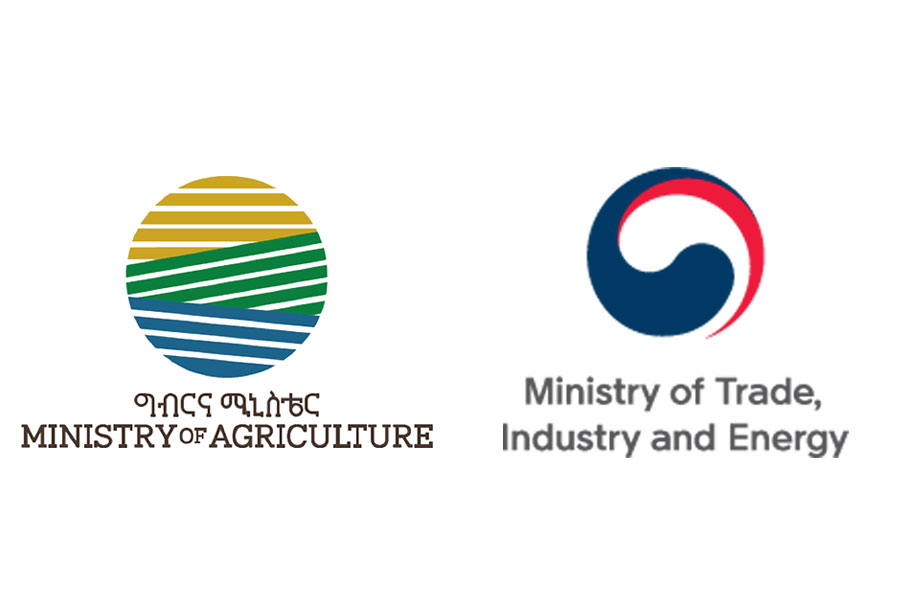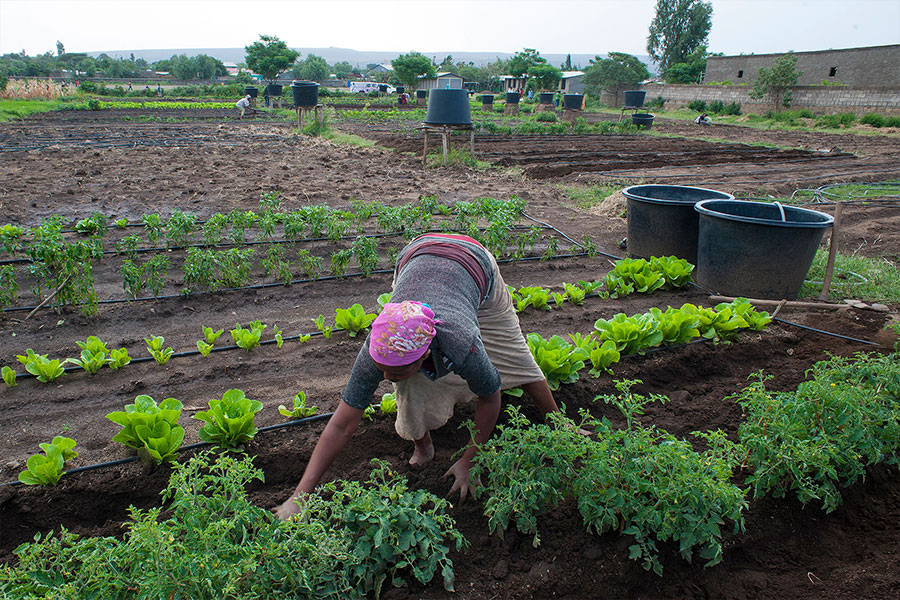
Fortune News | Sep 08,2019
Dec 17 , 2022
By BERSABEH GEBRE ( FORTUNE STAFF WRITER )
Exporters, transporters and trading companies are required to apply for export permits from the Ministry of Trade & Regional Integration (MoTRI), retracting the mandate from regional trade bureaus, a move meant to fight a growing contraband trade. Exporters will have to show valid documents at all checkpoints of the Ethiopian Customs Commission before crossing borders.
The Commission threatened to stop exports without permits obtained from the Ministry, making permits issued by regional states invalid "due to the alarming rise of contraband." The Commission seized contraband goods valued at over half a billion Birr in the first quarter of the budget year. Signed by the Legal Commissioner, Mulegeta Beyene, the decision came following a three-day meeting between officials from the two federal institutions. The export permits granted by weredas and regional bureaus have been misused to encourage contraband trade.
Regional trade bureaus were mandated to issue permits to the commodity exchange warehouses. According to Mesfin Abebe, advisor at the Ministry, agricultural products such as oils, pulses, and khat, as well as livestock earning large-share of foreign currency were prone to contraband trade. Spices, oilseeds and pulse exporters brought a little over half a billion dollars in export earnings last year, data from the central bank disclosed.
The amount represents one-fourth of the total revenues generated from exported items but dropped by eight percent from the previous year's earnings.
Mesfin believes that contraband trade is the primary cause of the decline in export revenues. After confiscating a stockpile of 94,000tns from exporters' warehouses, officials set a deadline to auction them by the end of this month.
Atelaw Alemu (PhD), a lecturer at Addis Abeba University's School of Business & Economics, says that contraband is not the only factor in dawdling foreign currency. Insufficient production and lower offers from international buyers should also be addressed.
The export of goods brought in 4.12 billion dollars last year, nearly 14pc higher than revenues generated the year before. Agricultural commodities account for close to three-quarters of the revenues. Coffee remains the most valuable export item, generating 1.4 billion dollars.
Togochale town borders Somaliland, 65Km from the seat of the Somali Regional State, Jigjiga. It is where livestock contraband trade is exacerbated, with 162 cattle intercepted by inspectors near the border last year, disclosed Mesfin.
Eastern Hararege Zone Trade Secretariat Office, Ziyad Kedir, is unaware of the notice but awaits federal mandates to issue regional permits for fruits, vegetables and khat. These commodities used to be traded across borders without permits, with farmers required to present land-holding certificates if the supply amount exceeds four kilograms. Close to 37 exporters were registered to buy from suppliers in the zone.
Oromia Regional State is the largest Khat producer, with 1.3 million quintals annual production, followed by the Southwestern and Sidama regional states.
Dejen Gebre Meskel General Export has been in business for the past 12 years. It ships livestock, khat, and oilseeds using freight trucks into China and Europe. The Operation Manager, Bethlehem Solomon, said they are already getting permits from the Ministry and will not see any changes with the new rule issued two weeks ago.
Ziyad expects the permits from the regional bureau will be issued in the coming month. "This also aims to prevent contraband," says Ziyad. His office has the mandate to patrol six checkpoints in the zone.
Exporters pay one Birr for a permit, valid for one-way passage to cargo shipments.
"It's not much, but the process takes time," said Ziyad.
PUBLISHED ON
Dec 17,2022 [ VOL
23 , NO
1181]

Fortune News | Sep 08,2019

Fortune News | Mar 18,2023

Advertorials | Apr 08,2024

Radar | Apr 25,2020

Radar | Jul 07,2024

Fortune News | May 13,2023

Fortune News | Dec 25,2021


Radar | Aug 07,2021

Fortune News | Jan 19,2024

Dec 22 , 2024 . By TIZITA SHEWAFERAW
Charged with transforming colossal state-owned enterprises into modern and competitiv...

Aug 18 , 2024 . By AKSAH ITALO
Although predictable Yonas Zerihun's job in the ride-hailing service is not immune to...

Jul 28 , 2024 . By TIZITA SHEWAFERAW
Unhabitual, perhaps too many, Samuel Gebreyohannes, 38, used to occasionally enjoy a couple of beers at breakfast. However, he recently swit...

Jul 13 , 2024 . By AKSAH ITALO
Investors who rely on tractors, trucks, and field vehicles for commuting, transporting commodities, and f...

Oct 25 , 2025
The regulatory machinery is on overdrive. In only two years, no fewer than 35 new pro...

Oct 18 , 2025
The political establishment, notably the ruling party and its top brass, has become p...

Oct 11 , 2025
Ladislas Farago, a roving Associated Press (AP) correspondent, arrived in Ethiopia in...

Oct 4 , 2025
Eyob Tekalegn (PhD) had been in the Governor's chair for only weeks when, on Septembe...